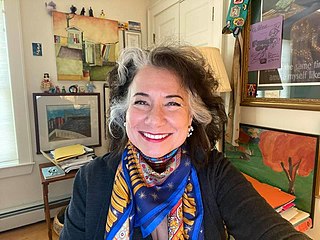A Quote by Joseph Addison
The soul, considered with its Creator, is like one of those mathematical lines that may draw nearer to another for all eternity without a possibility of touching it; and can there be a thought so transporting as to consider ourselves in these perpetual approaches to Him, who is not only the standard of perfection, but of happiness?
Related Quotes
If we believe in a God at all, we must surely ascribe to him perfection of wisdom and perfection of goodness; we are then forced to conceive of Him - however strange it may sound to those who believe, not only without seeing but also without thinking - as without will, because He must always necessarily pursue the course which is wisest and best.
If we affirm one moment, we thus affirm not only ourselves but all existence. For nothing is self-sufficient, neither in us ourselves nor in things; and if our soul has trembled with happiness and sounded like a harp string just once, all eternity was needed to produce this one event - and in this single moment of affirmation all eternity was called good, redeemed, justified, and affirmed.
Consider that all these torments of body and soul are without intermission. Be their suffering ever so extreme, be their pain ever so intense, there is no possibility of their fainting away, no, not for one moment ... They are all eye, all ear, all sense. Every instant of their duration it may be said of their whole frame that they are 'Trembling alive all o'er, and smart and agonize at every pore.' And of this duration there is no end ... Neither the pain of the body nor of soul is any nearer an end than it was millions of ages ago.
...a condemned man who, at the hour of death, says or thinks that if the alternative were offered him of existing somewhere, on a height of rock or some narrow elevation, where only his two feet could stand, and round about him the ocean, perpetual gloom, perpetual solitude, perpetual storm, to remain there standing on a yard of surface for a lifetime, a thousand years, eternity! - rather would he live thus than die at once? Only live, live, live! - no matter how, only live!
God wanted man to know him somehow through his creatures, and since no creature could fittingly reflect the infinite perfection of the Creator, he multiplied his creatures and gave a certain goodness and perfection to each of them so that from them we could judge the goodness and perfection of the Creator, who embraces infinite perfection in the perfection of his one and utterly simple essence.
That is what we must do when we fully know the purposefulness of life - live it gloriously by living it ecstatically. We can live it ecstatically only as we know the ecstatic nature of God and become like Him through being continually inspired by communion with Him. To become like Him, we must become aware of our identity with Him. We must know Him as Creator of all that is, and in so doing know ourselves as creator of all that is.
We hold these truths to be self-evident: that all men are
created equal; that they are endowed by their Creator with certain
inalienable rights; that among these are life, and the right to
make that of another miserable by thrusting upon him an
incalculable quantity of acquaintances; liberty, particularly the
liberty to introduce persons to one another without first
ascertaining if they are not already acquainted as enemies; and
the pursuit of another's happiness with a running pack of
strangers.
There is not a hint of one person who was afraid to draw near him [Jesus]. There were those who mocked him. There were those who were envious of him. There were those who misunderstood him. There were those who revered him. But there was not one person who considered him too holy, too divine, or too celestial to touch. There was not one person who was reluctant to approach him for fear of being rejected.
Sorrow and happiness are the heresies of virtue; joy and anger lead astray from TAO; love and hate cause loss of virtue. The heart unconscious of sorrow and happiness - that is perfect virtue. One, without change - that is perfect repose. Without any obstruction - that is the perfection of the unconditioned. Holding no relations with the external world, - that is perfection of the negative state. Without blemish of any kind, - that is the perfection of purity.
Happiness consists not of having, but of being; not of possessing, but of enjoying. It is a warm glow of the heart at peace with itself. A martyr at the stake may have happiness that a king on his throne might envy. Man is the creator of his own happiness. It is the aroma of life, lived in harmony with high ideals. For what a man has he may be dependent upon others; what he is rests with him alone.






































